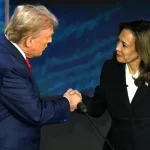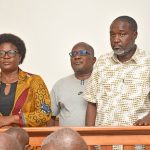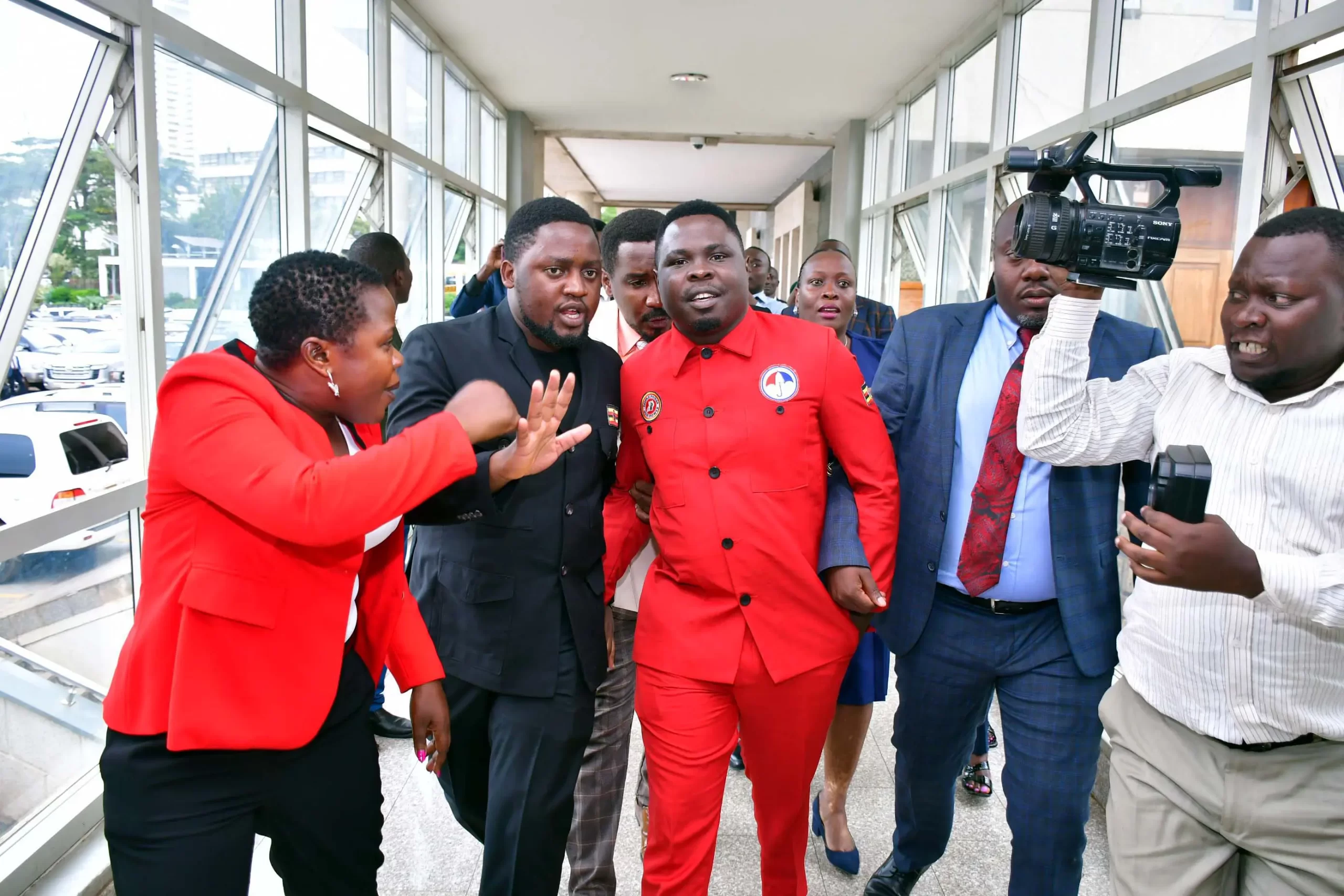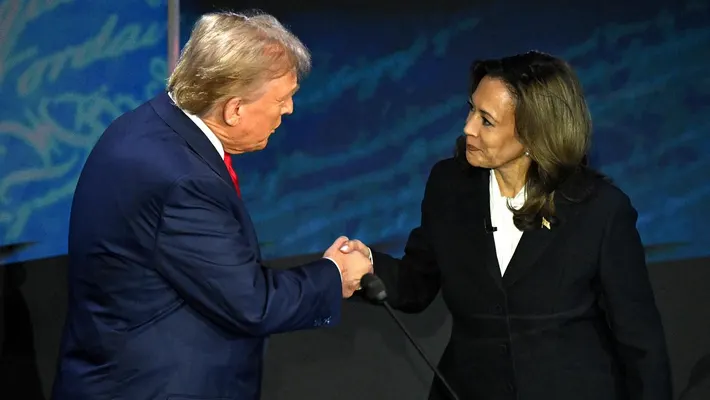
Ugandans love mob justice.
This is the only reason why some of them are over the moon about financial and immigration sanctions that the United Kingdom’s deputy foreign secretary, Andrew Mitchell, two weeks ago unnecessarily imposed on the Ugandan Speaker and two former cabinet ministers.
Put simply, we are confronted with an acute display of British mob justice against our fellow citizens.
None of the three female politicians from eastern Uganda is accused of a predicate offence committed in the UK which would to some extent justify the draconian asset freeze and travel ban.
Mary Kitutu and Agnes Nandutu, both lawmakers from Masabaland and former ministers for the Karamoja region, are embroiled in ongoing court cases in Uganda, challenging the alleged acts of corruption in respect of the Karamoja iron sheets affair with which the UK government is officially concerned. They are entitled to the presumption of innocence and respect for judicial independence.
Rt Hon Anita Annet Among, Bukedea District Woman MP and Speaker of the 11th Parliament of Uganda has neither been fingered by any complainant nor charged with corruption under Ugandan law by the UK-aided independent Inspectorate of Government and Director of Public Prosecutions, yet the UK government has misleadingly designated her as “an involved person” via the cases of Hon Kitutu and Hon Nandutu.
Moreover, UK Aid was not involved in the Karamoja iron sheets affair. What merit does the UK government thus claim for interfering paternalistically with the internal prosecutorial and judicial operations of a sovereign republic?
Comparison to Idi Amin
Viewed objectively, the official reasons for sanctioning the Ugandan trio are tenuously linked to the prescribed purposes for which a UK minister may invoke Section 1 of the UK Sanctions and Anti-Money Laundering Act 2018 (“the Sanctions Act”).
With great respect, the UK minister for Africa, Mr Mitchell, scored an own goal on April 30 when he invoked the Sanctions Act against Ugandan citizens in a manner inconsistent with the principles of sovereign equality and non-intervention in each state’s domestic affairs, contrary to Article 4 of the United Nations Convention Against Corruption which the UK ratified on 9 February 2006.
Whereas international cooperation is required to prevent and combat corruption effectively, it is important to bear in mind respect for the rule of law. Regrettably, however, the UK’s first-ever use of its Global Anti-Corruption Sanctions regime on Ugandan citizens has undermined mutually cherished common law principles such as sub judice, presumption of innocence and due process.
Since the UK government does not seek international cooperation to prosecute the trio within its jurisdiction or return any confiscated assets to Uganda, its malevolent use of “global anti-corruption sanctions” for an ulterior purpose is a dangerous signal to the Ugandan people who are desperate for accountability that the UK endorses mob justice against Ugandan politicians and their fellow citizens.
A Jim Crow move by all accounts, Andrew Mitchell’s finger-wagging evokes unpleasant memories of inhuman deportations of prominent African critics of British colonialism and the UK’s remorseless confiscation of their assets to date.
Unsurprisingly, Mr Mitchell has also attracted comparison to former president Idi Amin who in 1972 expelled Asians unceremoniously from Uganda for being “corrupt British citizens” before taking over and redistributing their assets.
This long-arm jurisdiction and bullying practice by the UK government tramples on international laws, and undercuts the foundation for Uganda-UK cooperation on furthering the interests of global peace and security and fostering respect for democracy, human rights and the rule of law.
The Ugandan ministry of foreign affairs strongly condemned this move on May 2 and has lodged serious demarches and a strong protest to the UK side, which ought to be amplified by every adherent of sovereign equality, judicial independence, democracy, human rights and the rule of law.
White Saviour Complex
Unbeknownst to the gullible public in Uganda and Britain, the UK minister who signed off on these virtue-signalling sanctions is a hypocrite and grandstander.
Andrew Mitchell is a big fan of mob justice and the victimization of women.
He is also a diehard supporter of the Rwandan president Paul Kagame, whose administration Mr Mitchell has hitherto controversially lavished with praise and UK aid despite its unsavoury reputation.
From 2007 to 2009, the MP for Sutton Coldfield since 2001, led groups of Conservative party volunteers on a mission of white saviourism to Rwanda, as part of Project Umubano.
During one of these trips, Mr Mitchell and his aides verbally abused one of the volunteers, a 21-year-old student journalist who had circulated a draft newspaper article she had written stressing the positives of the project, but also pointing out some problems with its operation.
In an article published by The Telegraph on 21 September 2012 under the title “How Andrew Mitchell turned his anger on me,” Lucy Kinder exposed a text message the future UK minister for development and Africa had sent her father, a friend from his Cambridge University days: “They [his aides] are threatening her with physical violence and I can’t say I blame them.”
The self-confessed “stern disciplinarian”—who is fond of his elite Rugby School nickname “Thrasher”—was infuriated by the idea of accountability for his and the Rwandan government’s role in the duplicitous Project Umubano.
It is therefore hypocritical of Mr Mitchell to give us a speech about “sending a clear message to those who think benefiting at the expense of others is acceptable.”
“Goats yes, iron sheets no”
Mr Mitchell’s sanctions are a mockery of concern for Karamoja’s plight and Uganda’s UK-aided state anti-corruption machinery, and have been rightly criticised as a trinket.
According to Nora Owaraga, a noted UK-trained community development expert familiar with “the big picture of the Ministry for Karamoja Affairs – Office of the Prime Minister (OPM) Karamoja Livelihoods Programme corruption scandal 2021-2023,” the UK sanctions are a disagreeable bauble: a “copper medal” cynically intended to “appease [victims] who have been badly robbed”.
“You will recall [that] the Parliament of Uganda approved and allocated 30 billion shillings (GBP 6,336,000) plus to an ill-designed, ill-planned and eventually ill-executed livelihoods programme [allegedly for] rooting out cattle rustling as a livelihood option among youth (karachuna), particularly young men, of Karamoja,” Ms Owaraga notified the readers of her blog nowaraga.com on May 4.
Citing extensively from the Auditor General’s interim report of a forensic inquiry into the karachuna saga, Ms Owaraga revealed some truly depressing statistics that epitomize official corruption in Uganda today.
The greater portion of the Karamoja Livelihoods Programme funds, about 84 percent, was earmarked for procuring goats to donate to the karachuna (16 goats each) that had disavowed cattle rustling.
However, the number of goats procured was lower than what was budgeted, and the number eventually delivered to the intended beneficiaries in Karamoja much lower than what was procured.
Each karachuna received only one goat instead of the 16 shown in the approved budget. Moreover, the few goats delivered were either rustled or they died within a short time of arrival because they were of a breed that could not survive in the harsh arid conditions of Karamoja.
About 1.16 billion shillings (GBP 244,528) allocated for procuring goats was not utilized. Complaints about the Karamoja goat affair did not gain traction in the national press and so “[The] corruption scandal which logically should have been ignited … by the goat saga continued on unrecognised.”
Accordingly, Ms Owaraga opined, “the technocrats and politicians at the Ministry for Karamoja Affairs – OPM were emboldened to step up their game and to brazenly plunder 90 percent of the iron sheets that were to be gifted to [karachuna] under the Karamoja livelihoods affirmative action allocation 2021-2023.”
The diverted iron sheets were shared out among 22 cabinet ministers, including the vice president Jessica Alupo, prime minister Robinah Nabbanja and two of her deputies, and the finance minister and his deputy, as well as 30 MPs including the Rt Hon Speaker Anita Annet Among.
Seventy-one per cent of karachuna who received a paltry 10 percent of the procured iron sheets told the Auditor General that they did not possess a house which could be roofed with the iron sheets.
All the implicated politicians claimed ignorance about the iron sheets’ connection to Karamoja. They apparently assumed OPM had regularly allocated the items to them for onward distribution to the needy within their respective constituencies, and offered to make amends either by returning them or, as was the case for Speaker Among and several others, buying new iron sheets to replace what had already been dispatched to the constituencies and used to roof schools and health facilities.
The UK has sanctioned only 2 of the 3 ministers that were arrested and charged in connection with the Karamoja iron sheets affair. How did London exculpate deputy finance minister Amos Lugoolobi?
It is also unclear why Andrew Mitchell and his department singled out Rt Hon Anita Among, and spared 49 other politicians the ignominy of being co-designated as a person who “benefited from the proceeds” of the Karamoja iron sheets affair, yet their circumstances are manifestly similar.
Lastly, and in all fairness, Andrew Mitchell’s white saviourism is distinctly thrown into sharp relief by the deafening silence of his department in respect of the Karamoja goats affair, which imposed much higher corruption costs (GBP 5.3m) on the people of Karamoja than the iron sheets affair (GBP 1.0m), yet no suspect has hitherto been arrested, charged or sanctioned for their involvement in the former.
Is it British logic that stealing goats from the poor is okay, but stealing from them iron sheets is not?
If Mr Mitchell genuinely intended to lend Ugandans a hand to chop off the stiffened neck of impunity and breathe life into our dormant anticorruption institutions, he would not have omitted from the sanctions list DPP Jane Frances Abodo, who also hails from Karamoja, for her failure to prosecute all corruption suspects involved in the Karamoja goats affair, and the 49 other politicians who also “benefited from the proceeds” of the Karamoja iron sheets affair.
Playing with fire
Uganda was carved into its present shape from the heart of Africa by British imperialism in 1926, and the fragile peace it has experienced for the longest period since official Independence in 1962 has been based on the 1995 Constitution which, imperfect as it may be, seemingly represents the best compromise for political contestation and the administration of justice for the time being.
It should therefore be of interest to the UK department responsible for international cooperation, in Mr Mitchell is a political leader, to foster the sinews of peaceful conflict resolution in our nascent democracy by upholding the constitutional and international treaty values that we all hold dear.
Lynching a few Ugandan MPs with the UK global anti-corruption sanctions regime, to intimidate other African lawmakers to assist a UK government foreign policy goal that is unrelated to addressing the global corruption problem, is blatantly unlawful and tantamount to playing with fire.
By invoking the UK Sanctions Act opportunistically against Ugandan politicians the UK disapproves of, evidently at the behest of politicians and special interests it considers on the right of side of history, the UK government risks poisoning the attitudes of many Ugandans against transformative constitutionalism (using law to achieve social change and justice through non-violent means), and disdainfully in favour of mob rule or fascism (using extremely authoritarian, intolerant, or oppressive ideas or behaviour to attain or retain power).
But even mobs led by darlings of the UK do not respect set limits, and eventually run out of control.
Equally worrisome is the fact that these UK sanctions may elevate the designated MPs to sainthood, thus giving them the imprimatur to mobilise a mob to protect them against the pro-sanctions mob.
There are so many UK citizens, companies and charities, as well as Asian and US citizens or their interests, that may be harmed as vicarious targets or collateral damage of UK’s inspired mobocracy.
Maintaining public confidence in our public institutions and causing meaningful prosecution to combat impunity is what the Ugandan public expects of the UK’s vaunted anti-corruption clout.
Zero tolerance
In reality, Andrew Mitchell’s sanctions will not address systemic issues the Ugandan people face. They are not a gift to the Ugandan people. Their purpose is to serve the interests of the UK.
It bears repeating that we ought to defend our MPs against British mob justice, and multiply our efforts in using Ugandan law to hold them and their accomplices fully accountable to Ugandans.
As patriotic citizens, our obligation to defend national sovereignty and the independence of our institutions is colour-blind: it does not see our political, ethnic, tribal, religious, ideological, racial, gender or class differences.
It is a not a duty for only members of the ruling party, but also of the opposition and civil society.
It permanently requires a policy of zero tolerance, whether the cause is popular or unpopular.
All in all, it would profit the UK to stop the bullying and smear campaign against Ugandan lawmakers, and immediately lift all sanctions on the designated trio.
Andrew Mitchell may have read History at Jesus College, but his political nous is chronically blighted by a White saviour complex which does not allow him to understand the ramifications of his latest anti-corruption grandstanding.
The author is the CEO Legal Brains Trust, a Kampala-based democracy and human rights watchdog.










